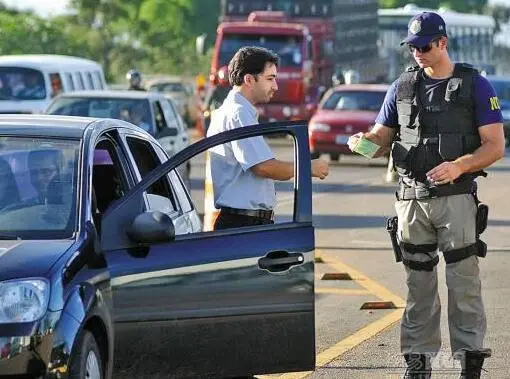The Austrian parliament has recently given its seal of approval to a legislation that grants authorities the power to seize the vehicles of individuals found guilty of driving significantly above the speed limit. This move signals a firm commitment to enhancing road safety and curbing reckless driving practices within the country.
By implementing such a measure, Austria aims to send a strong message to motorists about the severe consequences of disregarding speed limits and endangering the lives of fellow road users.
This decision is a testament to the government’s dedication to safeguarding public welfare and maintaining order on its roadways.
The introduction of this legislation is expected to act as a deterrent to potential offenders, as the threat of losing one’s vehicle serves as a substantial disincentive against engaging in high-speed driving.
Furthermore, this initiative aligns with the broader efforts of the international community to prioritize road safety and reduce traffic-related fatalities.
The approval of this legislation by the Austrian parliament is a significant step towards creating a safer and more responsible driving culture within the country.
Austria’s parliament has passed a bill that allows for the temporary confiscation of cars belonging to individuals who exceed the speed limit by more than 60 kilometers per hour in built-up areas or 70 kilometers per hour outside of town limits.

In addition, repeat offenders could potentially face permanent confiscation of their vehicles, which would then be auctioned off.
The issue of speeding on the roads has long been a concern for authorities worldwide, as it poses a significant threat to the safety of both drivers and pedestrians.
In an effort to curb this dangerous behavior, some jurisdictions have implemented strict penalties for those who exceed the speed limit by a substantial margin.
For instance, drivers who surpass the speed limit by more than 80 kilometers per hour (50 miles per hour) in built-up areas or 90 kilometers per hour (56 miles per hour) in unincorporated areas may face the possibility of having their vehicles permanently confiscated, even after a first offense.
This severe consequence aims to deter drivers from engaging in reckless driving practices and serves as a stark reminder of the potential consequences of disregarding speed limits.
While some may argue that this punishment is excessive, it is crucial to recognize the importance of prioritizing road safety and minimizing the risks associated with speeding.
By implementing such measures, authorities hope to create a culture of responsible driving, ultimately safeguarding the lives of all road users.

In March 2024, Austria is set to enforce a new measure aimed at curbing excessive speeding. This initiative, spearheaded by Leonore Gewessler, the Austrian minister for climate and transport, aims to address the dangers associated with speeding and treat a car as a potential weapon when operated beyond a certain speed limit.
The decision to enforce speed limits has generated mixed opinions, with supporters emphasizing the need for enhanced road safety, while opponents express concerns regarding the effectiveness and legality of such a measure.
This essay explores the rationale behind this decision, examining the arguments put forth by both sides and analyzing the potential impact on road safety and the transportation landscape.

- The Importance of Road Safety:
Road safety is of paramount importance, as it directly impacts the lives of individuals and communities. With increasing concerns about traffic accidents and fatalities caused by speeding vehicles, it is imperative to explore measures that minimize risks on the road. By imposing speed limits, Austria takes a proactive step toward ensuring the safety of its citizens, given the undeniable link between speed reduction and accident prevention. - The Perception of Cars as Weapons:
The decision to consider cars traveling above a certain speed limit as potential weapons signifies a shift in attitude towards reckless driving. While vehicles are primarily designed for transportation, their misuse can lead to severe consequences. By highlighting the potential dangers associated with excessive speed, this measure seeks to instill a sense of responsibility in drivers and raise awareness of the devastating impact their actions can have on others. - Political Consensus and Support:
The approval of this measure by lawmakers from various political parties showcases the widespread recognition of the urgency to address road safety. The support from the conservative Austrian People’s Party, the environmentalist Greens, and the center-left opposition Social Democrats reflects a unified front in prioritizing the well-being of citizens over partisan concerns. This cross-party consensus underlines the significance of the issue and enhances the credibility of the proposed measure. - Opposing Perspectives:
Despite the general support for the measure, two opposition parties have expressed reservations regarding its implementation. These concerns revolve around the potential legal challenges and doubts about the effectiveness of speed limits in preventing accidents. It is essential to weigh these objections against the growing body of evidence that supports the positive impact of speed reduction on road safety. Additionally, addressing the legal concerns can serve as an opportunity to refine and strengthen the implementation framework. - Potential Impact on Road Safety:
Implementation of speed limits offers several potential benefits. Firstly, it can reduce the number of accidents, injuries, and fatalities caused by high-speed collisions. Secondly, it can enhance traffic flow and reduce congestion, as vehicles adhering to appropriate speed limits are more likely to maintain a consistent pace. Lastly, reduced speed can positively impact environmental factors such as air pollution and carbon emissions, aligning with the government’s commitment to combating climate change.

The decision to implement speed limits as a safety measure in Austria marks a significant step towards improving road safety and reducing the potential for accidents.
By treating vehicles traveling above a certain speed as potential weapons, Austria sends a strong message about the importance of responsible driving.
While concerns raised by opposition parties are valid, they must be thoughtfully addressed to ensure the smooth implementation and effectiveness of the measure.
Ultimately, prioritizing road safety and the well-being of citizens is an essential duty of any government, and this measure demonstrates Austria’s commitment to this cause.
